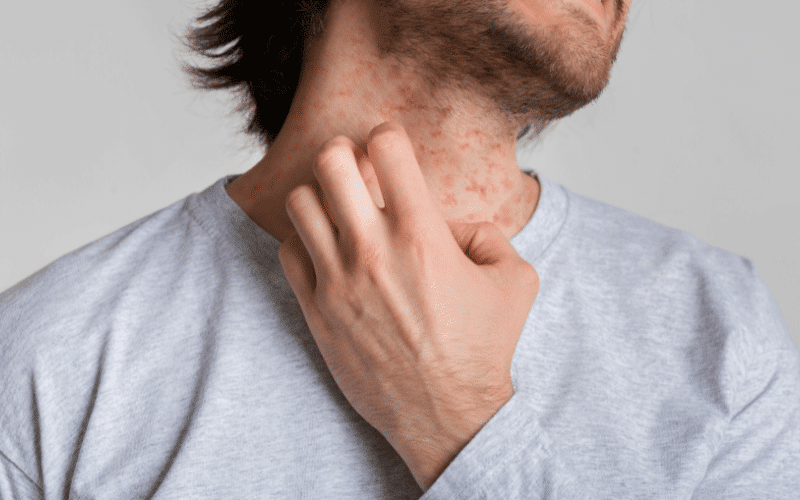2. Eczema: The Itchy, Inflammatory Skin Condition

Dry, Itchy Skin: The Hallmark of Eczema
Eczema, also known as atopic dermatitis, is a chronic inflammatory skin condition characterized by dry, itchy, and red skin. It commonly affects children but can persist into adulthood or develop later in life. Eczema is often associated with a genetic predisposition and a dysfunctional skin barrier, which leads to increased water loss and vulnerability to allergens and irritants.
Flare-ups and Triggers: Identifying the Culprits Behind Eczema Symptoms
Eczema symptoms can come and go, with periods of remission followed by flare-ups. These flare-ups can be triggered by various factors, including allergens (such as pollen, pet dander, or certain foods), irritants (like harsh soaps or detergents), environmental conditions (temperature changes or low humidity), stress, and infections. Identifying and avoiding these triggers can help reduce the frequency and severity of eczema symptoms.
Complications: Infections and Impact on Sleep
Scratching the itchy skin associated with eczema can lead to skin damage and an increased risk of bacterial, viral, or fungal infections. Moreover, the relentless itchiness can cause sleep disturbances, leading to fatigue and reduced quality of life.
Treatment and Management: Moisturizing, Medications, and Lifestyle Changes
There is no cure for eczema, but the condition can be managed through a combination of treatments and lifestyle changes. Regular use of moisturizers can help maintain the skin’s barrier function and reduce dryness and itching.
Topical corticosteroids, calcineurin inhibitors, or other anti-inflammatory medications may be prescribed to control inflammation during flare-ups. Additionally, identifying and avoiding triggers, maintaining a consistent skincare routine, and managing stress can all help reduce the severity and frequency of eczema symptoms. (2)